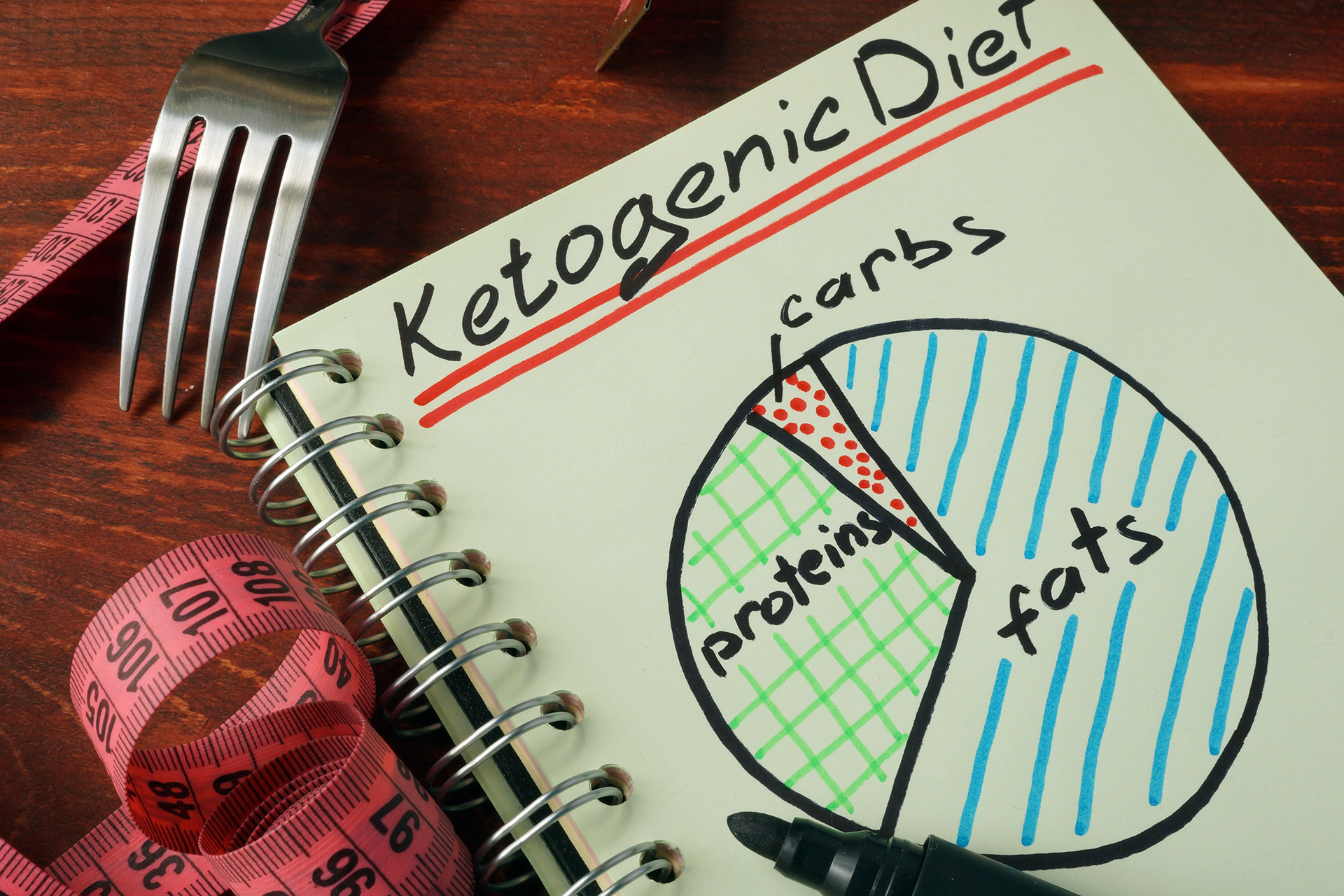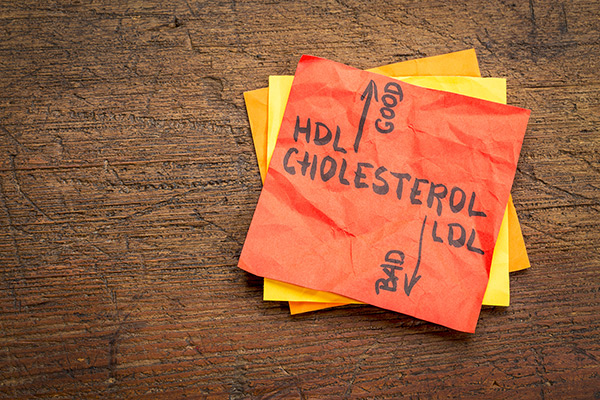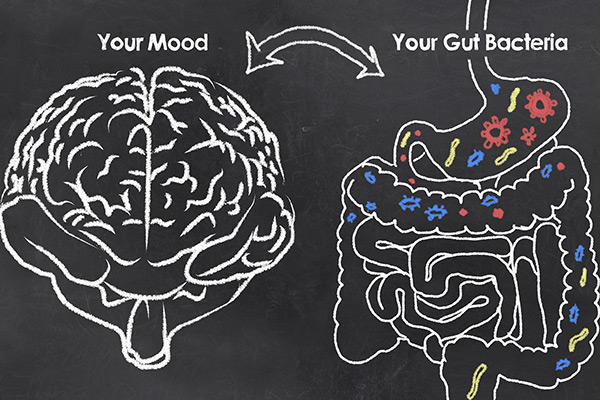
The ketogenic diet is the dietary guideline that proposes a high intake of fats, moderate protein and low, or almost zero, carbohydrates and sugars.
This revolutionary form of feeding was developed, at the beginning of the last century, as an unprecedented resource to treat diabetes and motor difficulties caused by childhood epilepsy.
Its principle is that this change in eating behavior forces the body to burn fats and lipids instead of carbohydrates to generate energy. Normally, the carbohydrates in the food are converted to glucose, which is then transported to the brain and other parts of the body and consumed as fuel.
However, when the body finds few carbohydrates, the liver converts the fat from the body and food into fatty acids and ketone bodies – water-soluble molecules of acetoacetate, beta-hydroxybutyrate and products of spontaneous decomposition of acetoacetate and acetone.
How does the body adapt to the new diet?
By decreasing the intake of sugars and flours that are gradually being replaced by healthier fats, the decrease in carbohydrates puts your body in a metabolic state called “ketosis”. In this condition, the fat accumulated in your body provides most of the energy for your body to function.
And when that happens, wow! The body becomes super efficient in burning fat. It also starts to transform fats into ketone bodies in the liver, providing even more energy to the brain.
Ketogenic diets also lead to huge reductions in blood sugar and insulin levels. This combination, along with the increase in ketones in the body, brings several health benefits.
Practical benefits of the ketogenic diet:
1 – Stimulates weight loss
Carbohydrates, eaten in the diet, are transformed by the body into sugar. This causes insulin levels to rise so that cells can absorb all the glucose from the blood and restore sugar levels.
As insulin raises body fat, restricted carbohydrate consumption forces the body to use this reserve as an energy source.
Thus, ketosis begins when the body adapts to a lower intake of carbohydrates by converting fat into energy. At the same time, when consuming a small amount of carbohydrates, insulin levels tend not to increase much and fat storage begins to be consumed.
2 – Burns the belly fat (helps in the loss of abdominal fat)
Our body has different types of fat. Visceral is the one that accumulates in the abdominal cavity around the internal organs of the body. The ketogenic diet is extremely effective in losing visceral (belly) fat. When done correctly, the results appear very fast and, in addition to the aesthetic aspect, they contribute to maintaining health: visceral fat is closely linked to cardiovascular disease and silent chronic inflammation.
3 – Decreases triglyceride levels
Triglycerides (TG) are specific fat molecules, composed of three groups of fatty acids and glycerol. High levels of TG are found in people who eat many foods rich in carbohydrates, as our body stores sugar in the form of fat. High levels of TG increase the risk of stroke, heart disease and any chronic disease. Therefore, investing in a diet low in carbohydrates and high in fats – without flours or sugars – decreases TG levels and, consequently, the risks of developing diseases linked to them. Note that, in low-fat diets, carbohydrate consumption is generally high, which increases TG levels.
4 – Increases good cholesterol
Good cholesterol, as “high density lipoproteins” (HDL) are called, helps to transport cholesterol from the bloodstream to the liver, where it is broken down and discarded. Ketogenic diets suggest increased consumption of fats, which is good for raising HDL levels in the blood. This occurs mainly when we try to eat more fat from healthy foods, such as wild salmon, avocado, olive oil, eggs and nuts.
5 – Controls blood sugar
As is well known, blood sugar is the main concern of diabetics and so it should be of all people with some chronic disease. Changing the amount of sugar entering the body can affect insulin levels and have serious side effects. The good news is that when you cut the carbohydrates out of your diet, your body no longer needs that much insulin. The ketogenic diet brings better control over insulin levels and needs.
Very important: Even knowing the benefits of this diet, people with diabetes need medical attention – especially insulin dependent patients.
6 – Controls blood pressure
High blood pressure is always a danger sign. Several health risks are linked to increased blood pressure, including strokes, heart disease, loss of vision, kidney failure and other diseases.
The ketogenic diet reduces the so-called blood sugar spikes. This causes an improvement in insulin resistance and helps to lower blood pressure, decreasing the risks for various types of cardiovascular accidents.
7 – Decreases the symptoms of metabolic syndrome
Metabolic syndrome is the red alert for diabetes, heart disease or neurodegenerative disease. Symptoms of the metabolic syndrome include abdominal obesity, high blood pressure, high fasting blood sugar levels, increased triglyceride levels and reduced HDL levels. With the targeted implementation of a ketogenic diet, all of these symptoms can be treated and improved.
8 – Change the structure of LDL
While HDL levels rise with the ketogenic diet, the structure of LDL (low density lipoprotein) levels in the body also improves.
The bigger the LDL particles, the less they float in the body, and that’s a good thing. This type of diet helps to increase the size of LDL particles, preventing more of them from circulating in the bloodstream and lodging in the walls of your arteries (remembering that in order for them to “stick” to your arteries, there must be an inflammation occurring in the arterial wall, and the cause of this change is excess sugar)
9 – Helps a lot in neurological disorders
Studies show that within a group of children with epilepsy an important percentage achieved a reduction in seizures when following a ketogenic diet. In addition, the use of ketones in the brain can stimulate areas and parts of the brain, helping to restore neural excitability and brain metabolism, in addition to combating neuroinflammation, a necessary condition for any neurogenerative disease, including Parkinson’s and Alzheimer’s disease.
10 – Controls appetite
Dieting does not have to be a pain. One of the main complaints of dieters is the constant feeling of hunger. We’ve all been there.. This leaves room for you to consume lots of snacks or even lots of fruits during the day, which can end up ruining your healthy initiative.
A high-fat diet brings that good feeling of satiety, leading to better control of appetite and therefore greater weight loss. This is directly related to reducing carbohydrates and increasing proteins and fats ingested in the diet.
Ketogenic diets certainly have great positive effects on your health that go far beyond reducing the percentage of body fat. Read, ask, find out more about it, you can start by making small changes to your diet and realizing how your body reacts. Just don’t venture too far without the guidance of a professional on this journey of healthy transformation!
References:
- An Online Intervention Comparing a Very Low-Carbohydrate Ketogenic Diet and Lifestyle Recommendations Versus a Plate Method Diet in Overweight Individuals With Type 2 Diabetes: A Randomized Controlled Trial.
- Ketogenic diet in endocrine disorders: Current perspectives.
- Treatment of diabetes and diabetic complications with a ketogenic diet.
- Effect of low-calorie versus low-carbohydrate ketogenic diet in type 2 diabetes.
- Ketogenic Diet for Obesity: Friend or Foe.
- Ketogenic Diet in Neuromuscular and Neurodegenerative Diseases.


